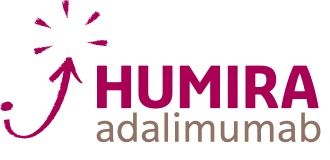- Center on Health Equity & Access
- Clinical
- Health Care Cost
- Health Care Delivery
- Insurance
- Policy
- Technology
- Value-Based Care
CVS Caremark Switches Up Biosimilar Coverage in 2024
As part of updates to its standard formulary, CVS Caremark has removed Amjevita and now prefers Hyrimoz and an unbranded biosimilar.
This article originally appeared on Formulary Watch®.
Beginning in January 2024, CVS Caremark will implement many changes to its drug list. The PBM has removed 25 products and added more than 30 products to the Performance Drug List-Standard Control for January 2024, compared with the formulary list for July 2023. Many of the changes involve biosimilars, with new products being added and several being removed.
One of the more notable formulary changes is the removal of Amgen’s Amjevita (adalimumab-atto), the first-to-launch biosimilar that referenced the arthritis drug Humira. Amjevita became available in January 2023 and launched with 2 different price points: 5% below Humira and 55% below Humira. When Amjevita launched, CVS Caremark had indicated that it would place the biosimilar on a nonpreferred brand tier on its commercial template formularies.
Humira (adalimumab) had more than 20 years of exclusivity in the US market, but this year it now faces competition from 8 biosimilars that have launched so far.
Image credit: AbbVie

However, beginning in January 2024, CVS Caremark instead will prefer Sandoz’s Hyrimoz (adalimumab-adaz), a citrate-free, high concentration formulation. Hyrimoz HCF is available at a list price that is 5% below Humira’s list price. CVS Caremark also will include Sandoz’s unbranded adalimumab-adaz, which is available at a discount of 81%. Humira remains on the pharmacy benefit manager's (PBM) drug list as well.
Two other drugs removed from CVS Caremark’s drug list are Regeneron’s Eylea (aflibercept) and Genentech’s Lucentis (ranibizumab). Both treat patients with macular degeneration, diabetic retinopathy, diabetic macular edema, and macular edema following retinal vein occlusion.
Eylea is also approved to treat retinopathy of prematurity. Eylea is approved in 2 doses: an 8 mg dose for a list price $2625 per single-use vial and a 2 mg dose is available with a wholesale acquisition cost of $1957.55.
No biosimilars have yet been approved that reference Eylea, but several are waiting for FDA approval, including one from Biocon Biologics and another from Formycon, and Sandoz announced in August 2023 positive results from a phase 3 of its biosimilar. Lucentis has a price of about $1242 for 6 mg dose and $2062.85 for a 10 mg dose.
CVS Caremark suggests its preferred alternatives are the Lucentis biosimilars Byooviz and Cimerli, both of which have been added to the formulary list for January. The FDA approved Cimerli (ranibizumab-eqrn) in August 2022. Developed by Coherus BioSciences, Cimerli is available in both 0.3 mg and 0.5 mg dosages and launched with a list price of $1360 for the 0.5 mg dose single-use vial and $816 for the 0.3 mg dose vial. Biogen’s Byooviz launched in June 2022 with a list price of $1130 per 0.05 mg single use vial to be administered by injection to the back of the eye. It recently gained an interchangeability designation.
CVS Caremark also will remove 2 biosimilars of Herceptin, which is approved to treat HER2-positive breast and stomach cancer: Kanjinti (trastuzumab-anns) and Trazimera (trastuzumab-qyyp). Amgen’s Kanjinti was approved in June 2019 and has a price of about $1441 for 150 mg, according to Drugs.com. Pfizer’s Trazimera was approved in March 2019 and has a price of $1285 for 150 mg, according to Drugs.com.
The PBM instead prefers Teva’s Herzuma (traztuzumab-pkrb) and Biocon Biologics’ Ogivri (traztuzumab-dkst), both of which have been added beginning in January. All 4 products are biosimilars of Herceptin. Herzuma was approved in December 2018 and has a price of about $1,486 for 150 mg, according to Drugs.com. Ogivri was approved in December 2017 and has a price of about $1,400 for 150 mg, according to Drugs.com.
Another biosimilar Herceptin biosimilar, Organon’s Ontruzant, is not mentioned on CVS Caremark’s list.
In terms of additions to the CVS Caremark’s formulary, one Remicade (infliximab) biosimilar has been added. Amgen’s Avsola (infliximab-axxq) is approved to treat patients with Crohn’s disease, ulcerative colitis, rheumatoid arthritis, plaque psoriasis. It has price of around $536 for a 100 mg, according to Drugs.com. Remicade remains on the CVS Caremark list and has a price of $1239 for 100 mg, according to Drugs.com.
Another biosimilar, Pfizer’s Inflectra (infliximab-dyyb), is excluded from Caremark’s drug list. It has a price of $1005.94 for 100 mg, according to Drugs.com. A third biosimilar, Organon’s Renflexis (infliximab-abda) is not mentioned on the formulary list. It has a price of $802.82 for 100 mg, according to Drugs.com.
Within the cancer area, CVS Caremark has excluded Sandoz’s Ziextenzo (pegfilgrastim-bmez), a biosimilar that references Neulasta and used to prevent infections after chemotherapy. It has list price of $4143 for 0.6 milliliters, according to Drugs.com. Instead, CVS Caremark prefers 2 other recently added biosimilars: Fylnetra (pegfilgrastim-pbbk), from Amneal Biosciences at $2642 for 0.6 milliliters, according to Drugs.com, and Pfizer’s Nyvepria (pegfilgrastim-apgf), which has a price of $4141.53 for 0.6 milliliters, according to Drugs.com.
Beyond biosimilars, CVS Caremark has excluded several other products but doesn’t include a preferred alternative. For example, Vyvanse (lisdexamfetamine dimesylate) has been excluded without an alternative. But earlier this year, the FDA approved at least 15 generics for Vyvanse, which treats people aged 6 years and older who have attention-deficit/hyperactivity disorder.
Another excluded product is Zioptan (tafluprost ophthalmic solution) to treat patients with glaucoma. Although no alternative has been suggested by CVS Caremark, at least 2 generics have been approved.
Additionally, Rhofade (oxymetazoline), which treats patients with rosacea, has also been excluded. CVS Caremark provides no alternatives, and there are no generics available. Ilaris (canakinumab) is a biological to treat patients with gout and other inflammatory conditions that CVS Caremark excludes without an alternative. No biosimilars are available for Ilaris.
